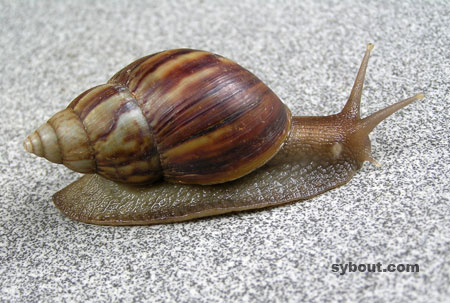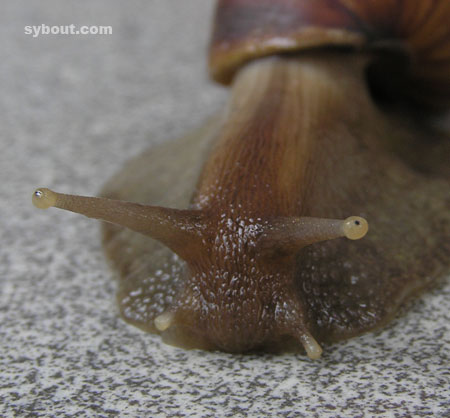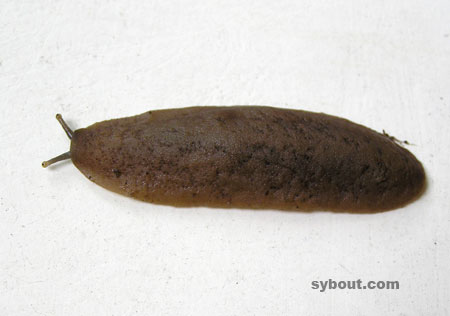East African Land Snail
Latin: Achatina fulica
Family: Achatinidae
Order: Achatinoidea
Class: Gastropoda
English: East African Land Snail, or Giant African Land Snail
Indonesian: Bekicot


Size:
the shells of the snails
living in my garden are not much longer than 7 - 8 cm, but in literature recordings are
found of 20 cm in length and 12 cm in diameter.
Though
this animal is kept as pet in some countries and is a delicacy
in others, it is not very popular around our house. It easily becomes a
pest that destroys several plant species.
The Giant African
Land Snail is not native to Indonesia, but has its origin in East
Africa (Kenya and Tanzania). Next to many humid tropical countries in Africa and Asia the snail has been introduced
to the islands of the Pacific and Indian Ocean and the West Indies.
It is easy to understand that the species can become a serious pest in an
environment without a suitable natural enemy. The lifespan of the
Giant African Land Snail is 5 - 7 years and reaches its adult stage
after about six months. A single snail can lay about 1000 eggs
during its lifetime. Eggs are said to hatch in anything from a few hours to 17 days.
Short after the dry season starts the animals disappear. It seems
they move underground and seal off their shell. During the rainy
season they appear again.
The moment I write this (September
2010) there is an exceptional situation: because of the unusual
humid dry season there the Giants African Land Snails are still
active in my garden. As usual you will find them more during the
night than in the daytime.
Tropical leatherleaf
Latin: Laevicaulis alte
Family: Veronicellidae
Order: Systellommatophora
English: Tropical leatherleaf
Indonesian: (unknown)

Size: about 4 cm
For a long time I had no idea what kind of slug sometimes moves around on the pavement in my garden (see photo on the right). The
animal was identified by a reader (N. S. Wong, who was friendly enough to write me) as Kaevicaulis alte, the Tropical leatherleaf.
Like the Giant African Land Snail it disappears in the dry season and shows up again in the next rainy season. It is a rather shapeless flat creature with a rough skin and is only easy to recognize as animal for its tentacles.